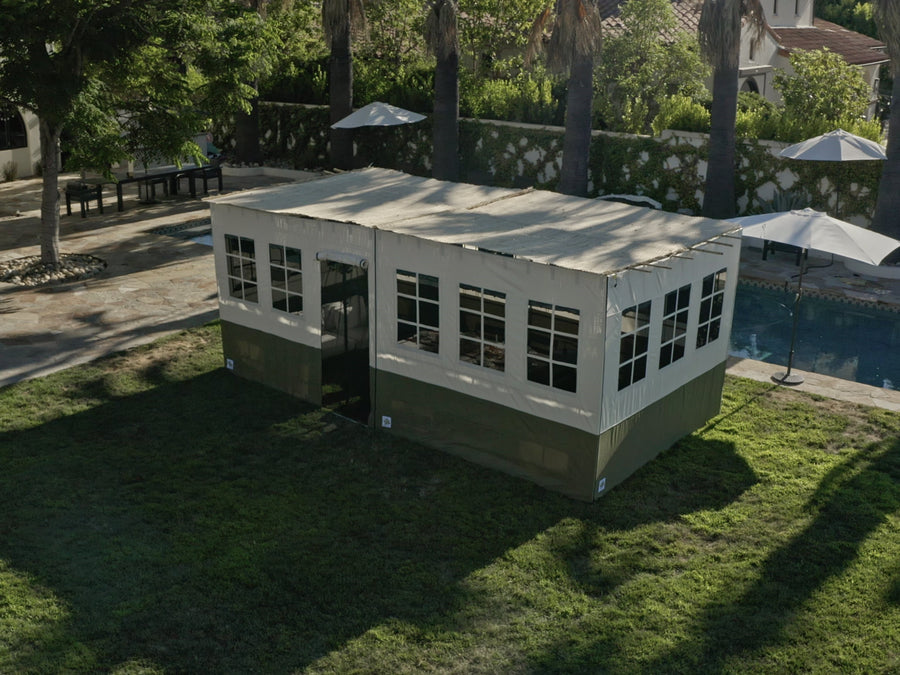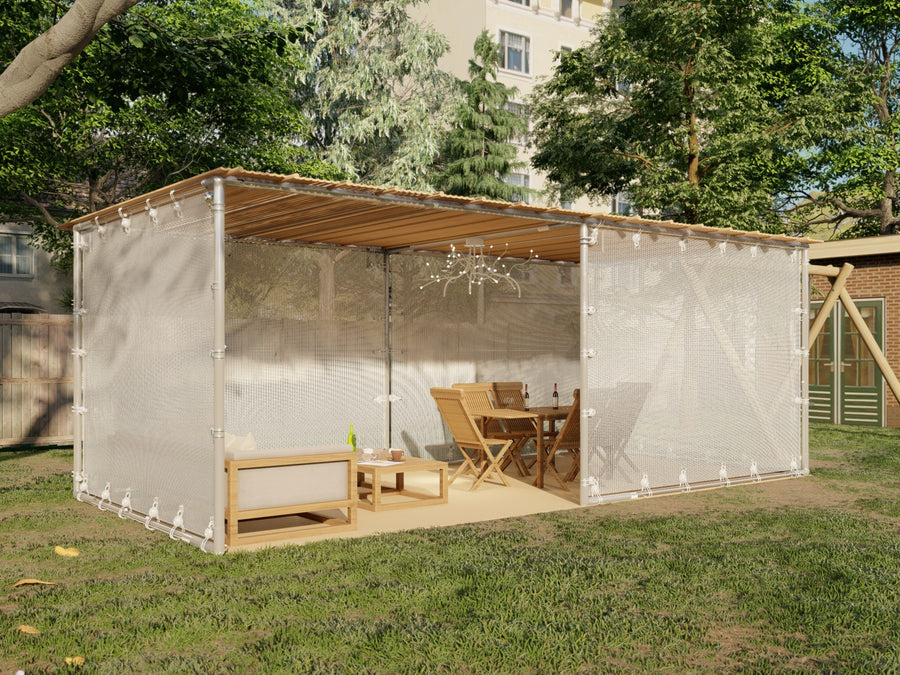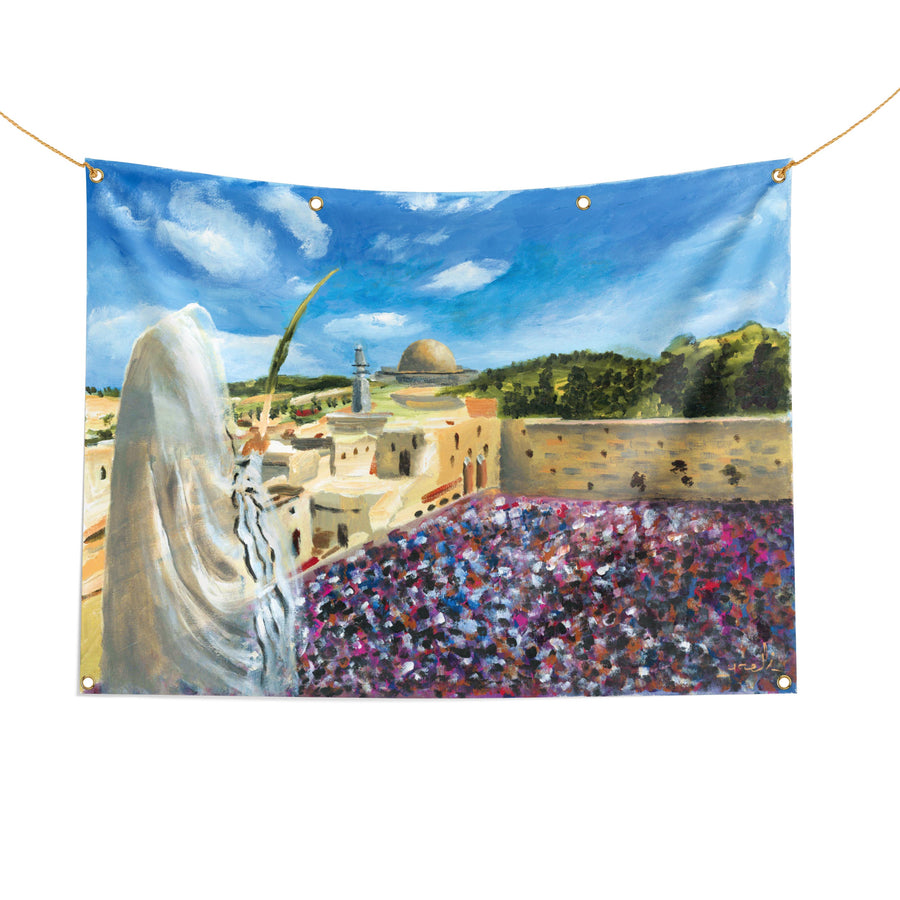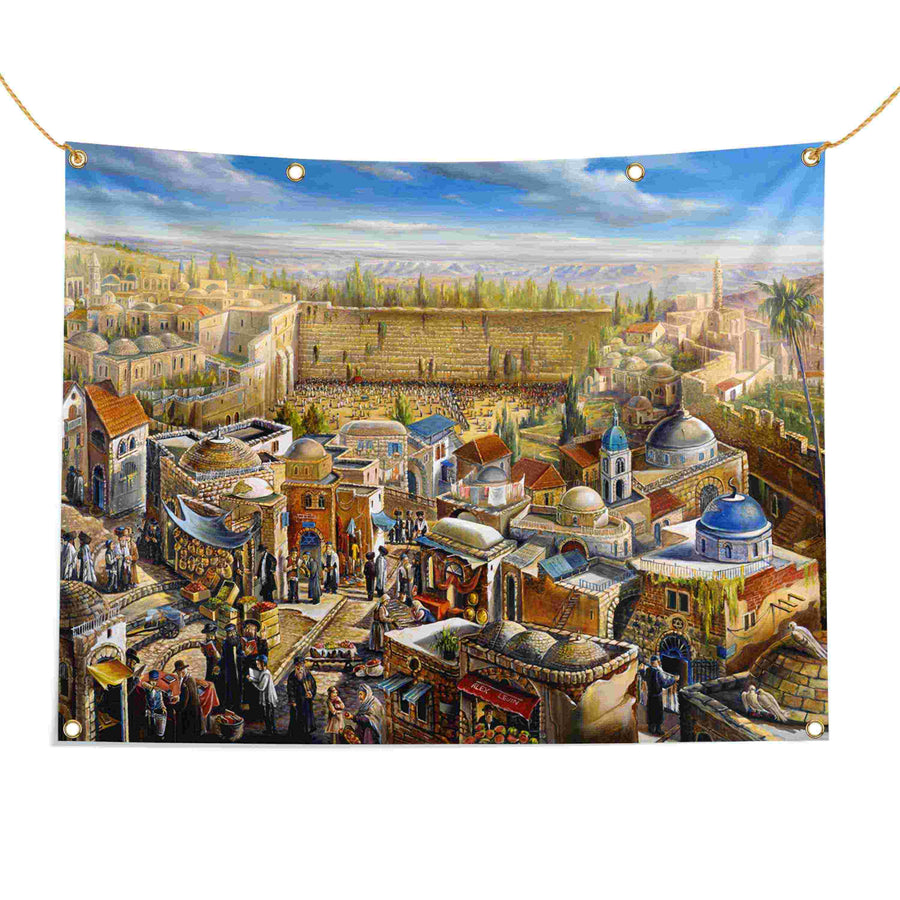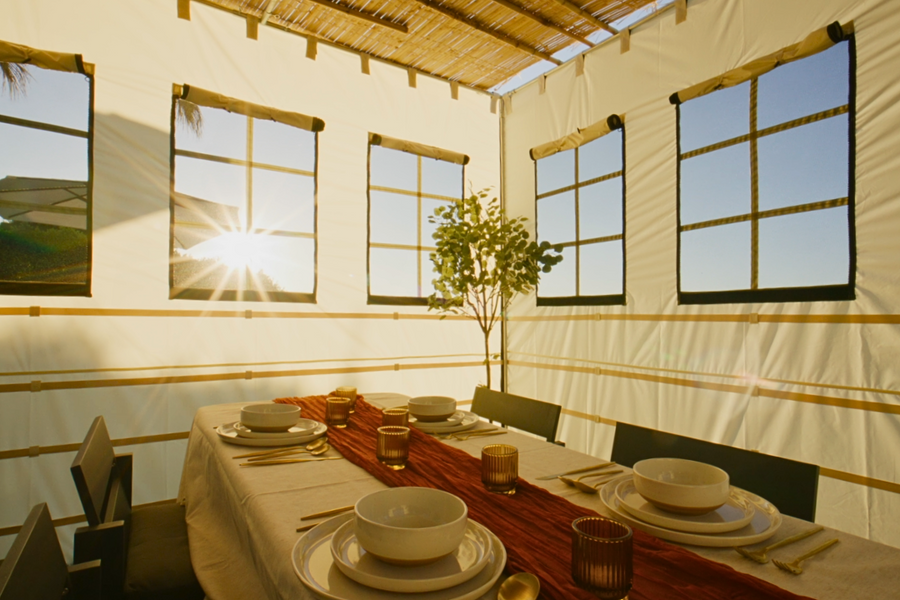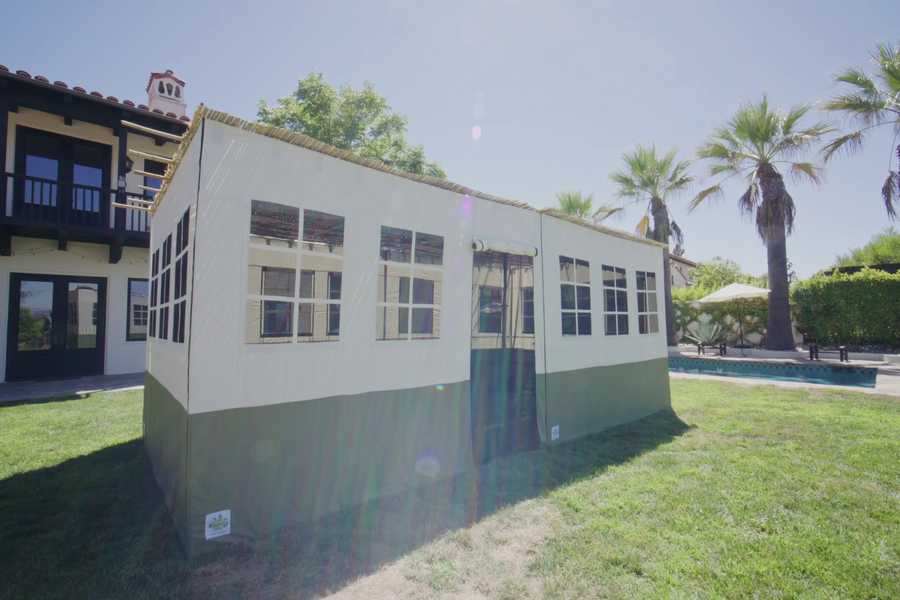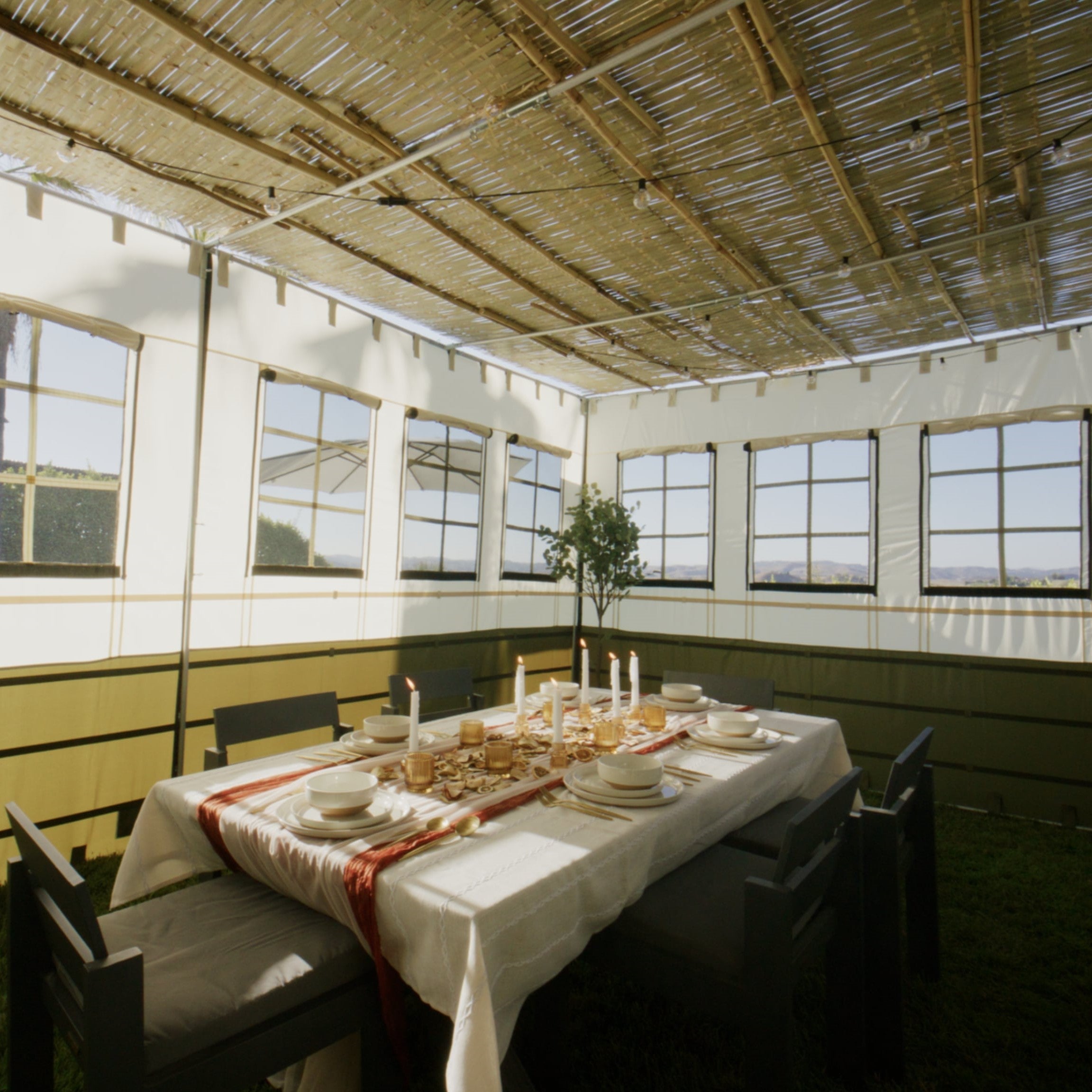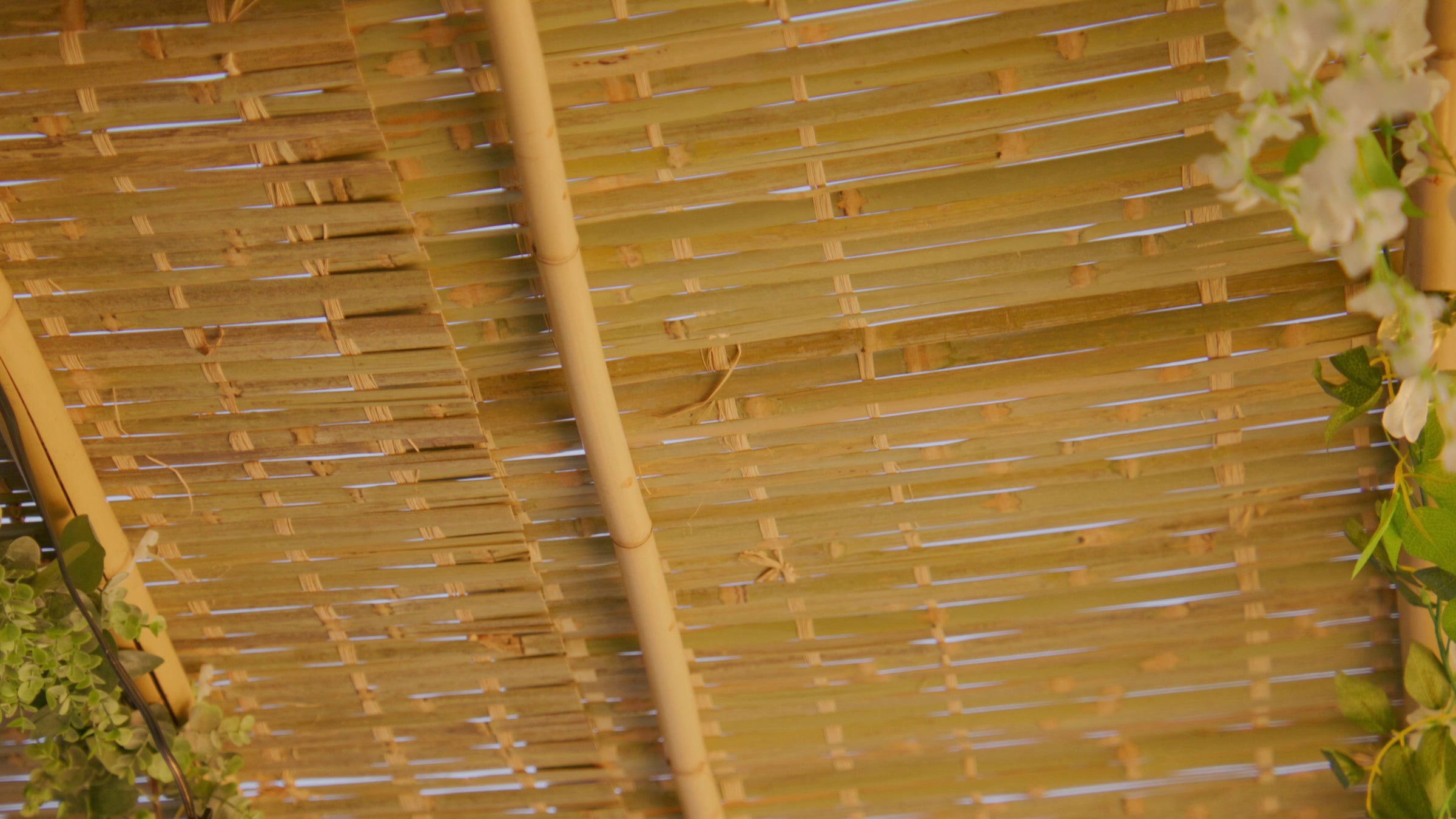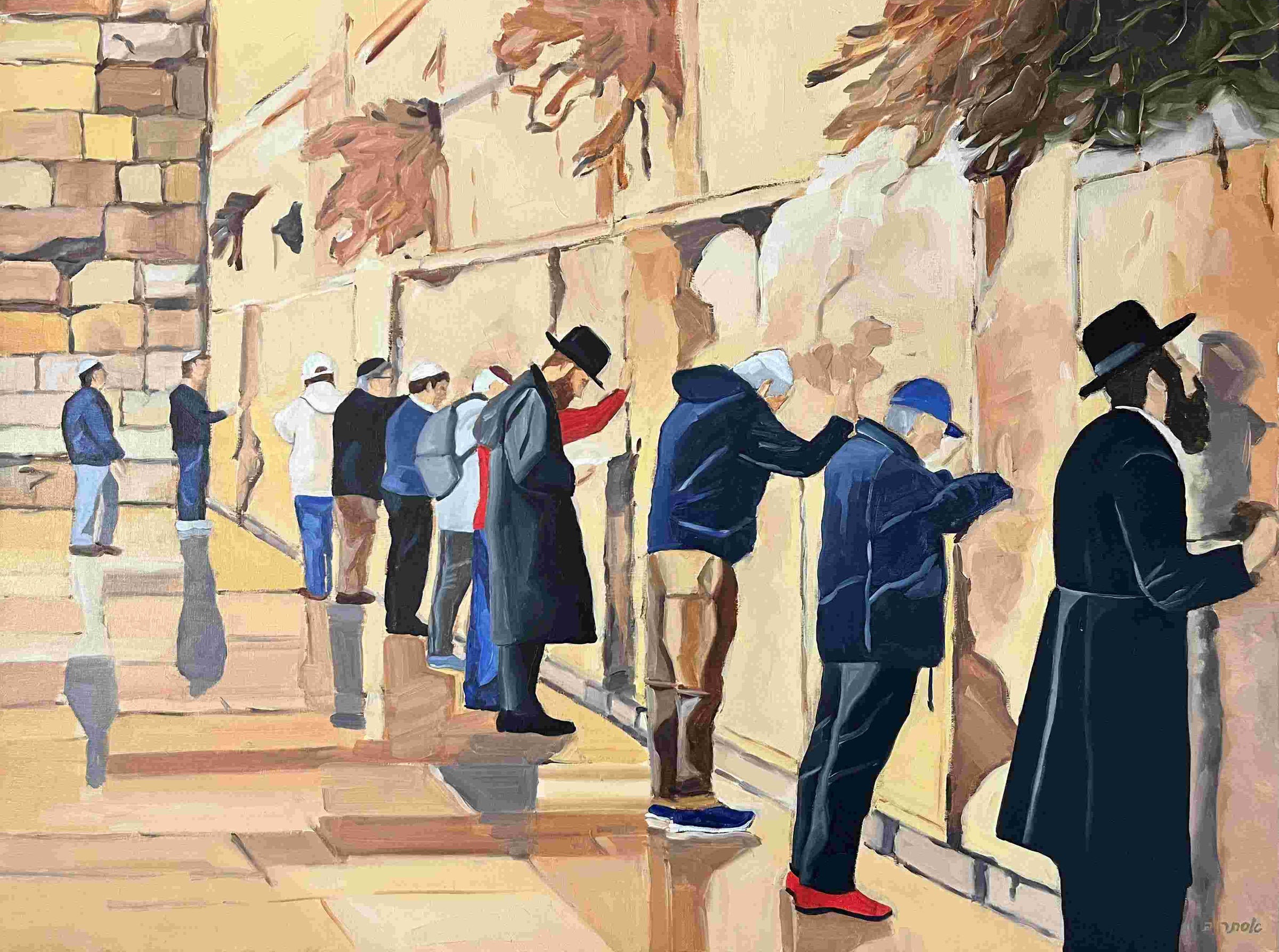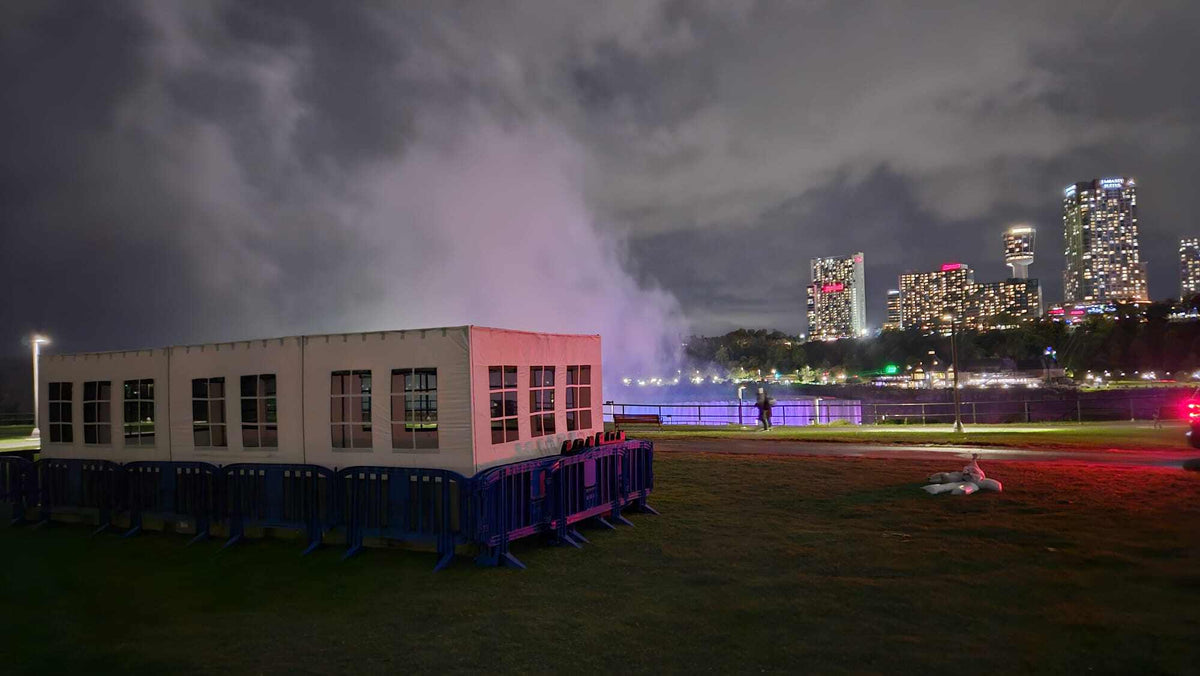

Table of contents
You’ve set the table, your Sukkah is beautifully decorated (or at least standing securely), and you’re ready to make kiddush – when suddenly, the heavens open up. Rain. On the first night of Sukkot. Now what?
According to Jewish law, if it’s raining on the first night, things get a little tricky. Normally, if it rains on Sukkot, you can pack up and eat inside – G-d doesn’t expect us to suffer through a soggy meal.
But the first night? That’s different. The Rema writes in Orach Chayim 639:5 that you must eat at least a kezayit (olive-sized portion) of bread in the Sukkah, rain or shine. Kiddush should also be made in the Sukkah, in order to recite the blessing Shehecheyanu properly.
So, does this mean you’re doomed to a damp dinner? Not necessarily.
The Mishnah Berurah's Rainy Day Strategy
The Mishnah Berurah (MB 639:35) suggests a workaround: wait it out. He advises delaying kiddush for an hour or two (or even until midnight) in case the rain stops. Why? Because if that first night of Sukkot rain clears, you can then eat properly in the Sukkah and make the leisheiv basukkah blessing, fulfilling the mitzvah according to all opinions.
Sounds reasonable – except that it also means you’re left staring at your delicious food, getting hungrier by the minute, while anxiously staring out the window, hunting for raindrops. Not exactly the joyous Yom Tov vibe we were hoping for.
An Alternative Plan: Eat, Wait, and Eat Again
Some have proposed a different approach:
Make kiddush in the Sukkah (without saying leisheiv basukkah).
Eat your meal inside the house (ensuring that it still qualifies as kiddush bimkom seudah – a halachic requirement that kiddush must be followed by a meal in the same place).
Wait until midnight (or as long as possible) to see if the rain stops.
If it clears up, go back to the Sukkah, say leisheiv basukkah, and eat a kezayit of bread.
If that first night of Sukkot rain doesn’t stop, before bed, step into the Sukkah, eat a kezayit of bread in the rain (without leisheiv basukkah), and call it a night.
The advantage? This method prevents a major simchat Yom Tov (holiday joy) disruption. Mishnah Berurah himself worries about this issue – after all, waiting around hungry for hours isn’t exactly festive.
But What About Shehecheyanu?
One potential issue with this alternative plan is when to say Shehecheyanu. If you say it in the Sukkah during kiddush while it's raining, are you really fulfilling the mitzvah? Mishnah Berurah points out that even if one is technically exempt at that moment, it still counts – just as it would if someone said Shehecheyanu while building their Sukkah before Yom Tov.
Why Is the First Night Different from All Other Nights?
On any other night of Sukkot, rain means you can just head inside, no guilt, no questions asked. If the weather turns your matzah balls into matzah mush, halachah waves you off with a friendly patur – exempt.
But the first night is a whole different story. Some compare it to the obligation of eating matzah on Pesach . Just like you wouldn't say, "Eh, I’m not in the mood for matzah this year," you can’t just opt out of eating in the Sukkah because of some first night of Sukkot rain, even if the sky decides to turn your Yom Tov meal into an immersive water park experience.
The Rema takes a firm stance: rain or shine, you still have to eat a kezayit of bread in the Sukkah. Yes, even if your challah is doing its best sponge impression. But the Mishnah Berurah complicates things by raising a key question – what about the leisheiv basukkah blessing?
Normally, we only say leisheiv basukkah when we’re actually fulfilling the mitzvah of dwelling in the Sukkah. But here’s the catch: one of the basic rules of Sukkot is that if you’re uncomfortably suffering (mitzta’er), you’re exempt from the Sukkah. And generally, we don’t make a brachah on something we’re exempt from.
So, if you’re sitting in a first night of Sukkot rain downpour, soaking through your Yom Tov best, and trying to pretend that wet challah is a delicacy, does that still count as fulfilling the mitzvah?
Some poskim (halachic authorities) say yes – you’re still technically eating in the Sukkah, and since the first night is special, you should say the brachah regardless. Others argue that since you're miserable, you’re not really “dwelling” in the Sukkah in the full halachic sense, so the brachah doesn’t apply.
This leads to a practical compromise: many will eat the kezayit without saying leisheiv basukkah , just to cover all bases.
Of course, this doesn’t solve the bigger issue – figuring out whether the mitzvah of Sukkot is to “dwell in the Sukkah” or to “endure the Sukkah.” If it’s the former, maybe eating in the rain doesn’t count. If it’s the latter, well, congratulations, you’re doing great. Either way, it’s a classic case of safek brachot lehakel – when in doubt about a blessing, we don’t say it.
In the end, whether you’re a machmir (person who goes for the stringent option) who eats in the rain with a leisheiv basukkah or a meikil (person who goes for the lenient option) who eats quickly and runs inside, there’s one thing everyone can agree on: soggy challah is the worst.
The Final Verdict: Patience vs. Practicality
So, what’s the best course of action? If you’re a purist (or just really committed to halachic stringency), you might choose to wait and hope that first night of Sukkot rain stops. If you’re more practical, the eat-now-wait-later method might be the way to go. Either way, at some point, you’ll need to take a bite of bread in the Sukkah – raindrops and all.
And hey, if it does rain, just remember: it’s a perfect opportunity to reflect on G-d’s sense of humor. You spent all that time building a Sukkah, only for Him to turn on the sprinklers. Classic.
So grab your challah, embrace the mitzvah, and if all else fails, invest in a really good raincoat.
Chag Sameach!
